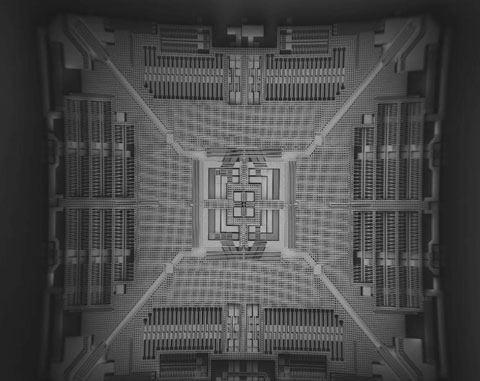Whenever we turn our phones sideways, the display changes orientation. This is common iPhone knowledge. These sensors track where we are, what direction we’re moving in, and even which way we’re holding our phone. But is this all they’re capable of?
Benedetto Vigna, GM of the MEMS division of STMicroelectronics, recently said that we could expect the production of new types of sensors. Sensors will now not only be able to track location and direction, but also elevation.
Even better, there could possibly be sensors that monitor aspects of the human body. Heart rates, moods, and the like will now be monitored by sensors that could possibly be contained within our phones, or communicate with them…
iOS and the iDevices have almost always required some sort of user input to make their apps work. But now with these new sensors, apps could be able to prompt themselves to respond to what is happening, without being prompted by the user. An app might detect a low heart rate, or a high heart rate, alert the user, and suggest ways to fix this problem. Our iDevices are moving beyond just phones, and in a matter of time, could be considered medical devices.
Vigna referenced to sensors filling our lives, specifically with the example of a garbage can. Our foreseeable future could be that when garbage cans in our house are getting full, they alert our phone that they need to be emptied. Or will location sensors fill our lives? Next time you lose your keys, you might just pull out your iPhone, open an app, and instantly have the location of your keys.
If what Vigna says is true, then the iPhone, and every other mobile phone for that matter, will soon be as advanced as a piece of lab equipment. With all the sensors he proposes, a mobile phone will be able to track almost every aspect of the human athlete. It will track the heart rate, perspiration, mood, and a number of other things.
Nike tried to introduce something like this back on an older generation iPod, but it never caught on. This was probably due to the fact it didn’t really track much. But pretty soon, after going for a run, you’ll be able to see your average heart rate, calories burnt, how much fluid was lost to sweat, and a variety of other statistics, formerly only available in a lab.
Without doubt, the sensors in mobile phone, specifically the iPhone, have become more and more advanced. But now, it is possible that these sensors will monitor every aspect of our lives. What sensors do you want to see on iDevices?
[NY Times]
